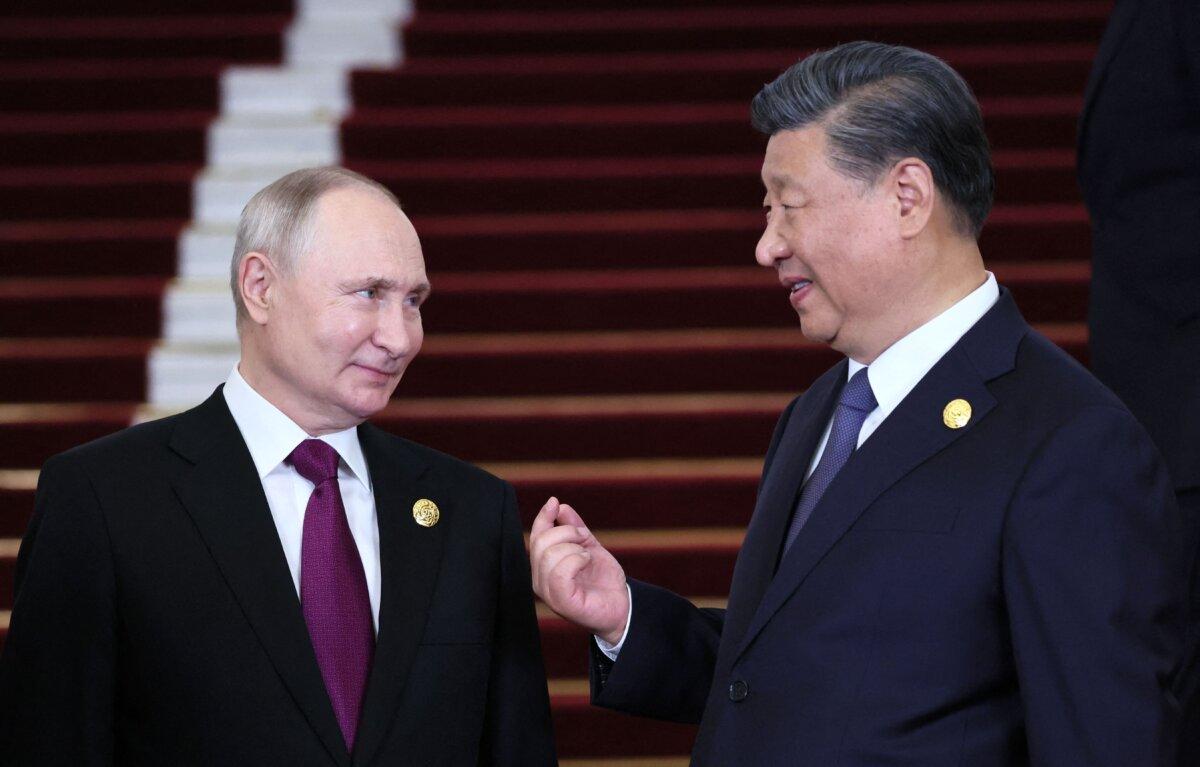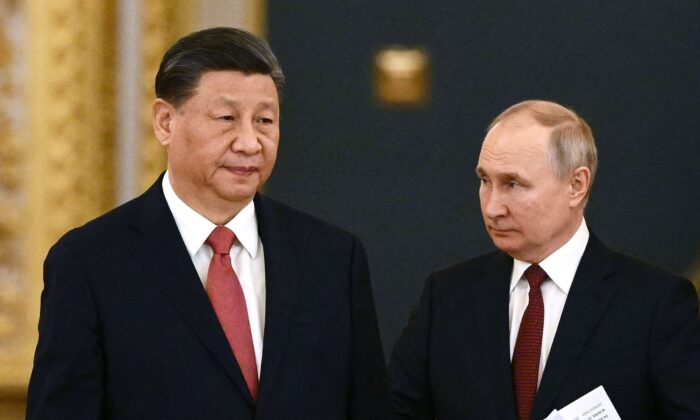CIA and MI6 leaders promote collaboration to combat Russia and China
CIA Director Bill Burns and MI6 Director Richard Moore stated that the CCP is the primary intelligence and geopolitical challenge of the 21st century.
The leaders of the intelligence agencies of the United States and the UK appeared together on September 7 to highlight the collaborative efforts of the CIA and MI6 in countering the geopolitical ambitions of countries like Russia and China on the global stage.
During an interview with the Financial Times, Burns mentioned that they collaborated in declassifying intelligence to shape public opinion against a potential Russian invasion of Ukraine in 2021.
Burns and Moore also praised the recent counter-incursion by Ukraine into Russian territory, terming it a significant achievement that lifted morale in Ukraine.
Burns and Moore highlighted their ongoing efforts to counter Russian intelligence activities, including spreading misinformation to create divisions between nations.
Recent actions by the U.S. Department of Justice involved indicting Russian nationals for attempting to influence U.S. political commentators and seizing websites that promoted messages favored by the Russian government.
Expanding Efforts Against CCP
Burns and Moore emphasized in their op-ed that the Chinese Communist Party (CCP) poses a significant intelligence and geopolitical challenge in the current era.
They stated that their agencies are now focusing more resources on addressing this growing threat, with Burns mentioning a threefold increase in the budget allocated to combating challenges posed by China.
Moore highlighted the ambitious agenda of CCP leader Xi Jinping and stressed the importance of understanding China due to its prominent role on the global stage.
While acknowledging the challenge posed by the CCP, Moore also emphasized the need for Western officials to engage with their Chinese counterparts.

Russian President Vladimir Putin and Chinese leader Xi Jinping interact during a welcoming ceremony at the Third Belt and Road Forum in Beijing on Oct. 17, 2023, in this pool photograph distributed by Russian state-owned agency Sputnik. Sergei Savostyanov/Pool/AFP via Getty Images
Burns and Moore also highlighted their efforts to address the increasing partnership between Russia and China and discourage China from providing military support to Russia in the ongoing conflict in Ukraine.
Currently, there is no direct evidence of China supplying weapons to Russia, according to Burns, while Moore noted that Chinese support for Russia has been limited to dual-use materials, with countries like Iran and North Korea providing actual weapons to Russia.
Moore described the relationships of the U.S.-UK alliance with other European nations as governed by shared values, contrasting them with the purely pragmatic relationships formed by Russia, China, North Korea, and Iran.
Burns speculated that Russia may feel discontent with its subordinate role in the Russia-China alliance in the future.
Gaza Cease-Fire Developments
In addition to countering Russia and tackling CCP challenges, Burns also discussed efforts to facilitate a cease-fire in the conflict with Hamas in Gaza.
Burns mentioned progress in finalizing a cease-fire agreement but cautioned that success is not guaranteed.
The cease-fire negotiations faced setbacks after the assassination of Hamas leader Ismail Haniyeh in Iran and subsequent threats of retaliation by the Iranian and Hezbollah governments.
Ongoing mediation efforts have focused on the terms of the cease-fire agreement, including Israeli control over the Philadelphi Corridor to prevent Hamas from regrouping.

(Top L–R) Eden Yerushalmi, Hersh Goldberg-Polin, and Alexander Lobanov. (Bottom L–R) Carmel Gat, Ori Danino, and Almog Sarusi. The Hostages Families Forum via AP
The recovery of the remains of six hostages in Gaza last week, believed to have been killed by Hamas, has complicated the cease-fire negotiations and sparked internal protests in Israel.
Amidst these challenges, Burns remains optimistic about finalizing the cease-fire agreement with new detailed proposals in the coming days.





